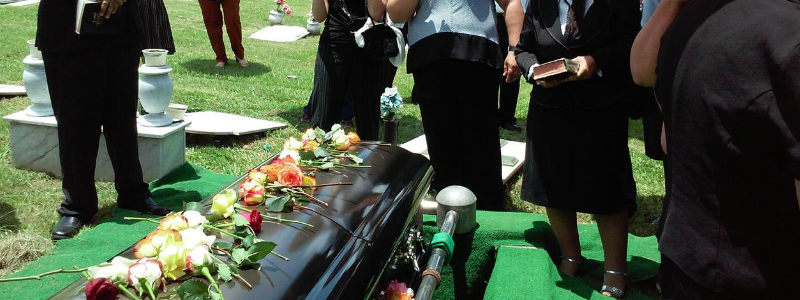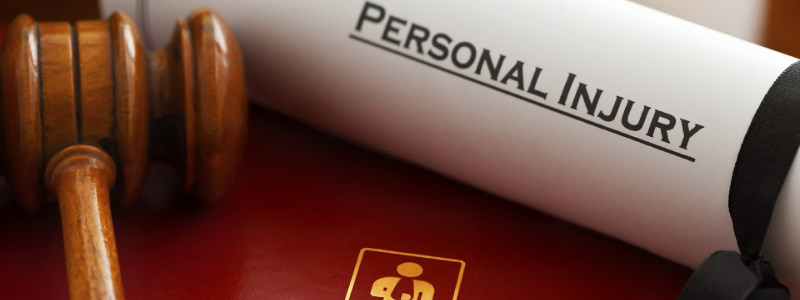Settlement
If you are injured in an accident, your life may be temporarily or permanently affected. You may experience loss of work or medical expenses not to mention mental health setback. Whether the situation involves a car accident or a slip and fall, plus anything in between, you are entitled to recovery time and compensation for costs. If you’ve moved through the process in taking action with your injury claim, you may be wondering how long does it take for a settlement? If your Oregon personal injury attorney has helped to reach an agreement in your claims case, it may take upwards of six weeks to receive your entitled compensation. A lawyer may help you get it sooner.
Depending on the nature of your personal injury claim, medical bills, vehicle repairs, reimbursements, out of work compensation, and other expenses are usually incorporated in a settlement. The process may seem overwhelming and time consuming, which is why it’s vital to seek injury representation. An experienced injury lawyer can help sort through the logistics and provide you with the best outcome to receive full compensation for every expense. A lawyer can help walk you through the process from start to finish.

Why Hire an Expert Injury Lawyer?
Chances are, if you are hiring a personal injury attorney, you’ve experienced an accident-related or work-related injured. As an outcome, you will be dealing with medical specialists, doctor visits and treatments programs. In a personal injury case, money damages are paid to an injured person by a person or company at fault, or legally responsible for the accident.
Regaining your health will be your focus. Leave the legal issues to the experts and free yourself of these worries.
Settling an injury claim is often time-consuming. Consider trials, Personal injury specialists are committed to ensuring their clients get financial compensation and effective, efficient recovery. Engaging the services of a personal injury lawyer gets you not only their legal expertise but also access to a wide network of treatment facilities and healthcare professionals. This information will help speed up the recovery process. Additionally, an experience attorney can better inform you or answer the question, how long does it take for a settlement to be received?
Injury Attorneys are Equipped to Deal with Major Insurance Companies
Most people covered by some form of insurance. A personal injury lawyer can provide clarity on complex insurance claim processes and ensure there are no missteps taken when filing paperwork and formal documentation. In turn, this helps to ensure full benefits for all lost wages and expenses, plus it helps to secure a speedy return on this money. Wondering how long does it take for a settlement is a common question among injured victims. While waiting is not ideal, it’s crucial that you seek full compensation prior to settling with insurance companies.
Important tip: do not negotiate with insurance companies without legal representation. Insurance companies are multi-million-dollar businesses eager to cut corners and settle a claim quickly. They do not serve injured victims best interest and will work hard to assert authority and offer the bare minimum payment to protect vested interests.
In general, large insurance companies seeks services from big legal firms with a primary goal is to settle claims for less than they’re worth. An experienced personal injury lawyer who is adept at advocating for your rights to a fair settlement can act in your favor.
Insurance Companies can Delay Payments & Reduce Claim Settlement Amounts
For most, battling insurance companies can be a nightmare. With endless resources at their disposal, insurance providers can make it incredibly difficult for you to receive a fair offer. In turn, many are forced into settling sooner without receiving what is rightful compensation. Big insurance deploys unscrupulous tactics and can place pressure on a need for immediate funds in order to avoid paying the necessary full amounts. How do they accomplish this?
If you’re in a car crash, a work accident, or anything else that requires you to file a claim with your insurance company, you should be prepared for some resistance. Insurance companies are notorious for trying, at all costs, to avoid paying out for claims. They may do any of the following:
- Informing you that a lawyer is not needed or you don’t need to hire one
- Delaying judgement on a case until the statute of limitations runs out
- Telling you certain damages are not covered by your existing policy
- Offering a very low settlement first
- Having claimant sign forms and statements
Important tip: insurance providers will try and trick claimants is by getting them to sign releases and forms that essentially void or prevent the potential for getting compensation. Don’t sign any forms until your Oregon injury attorney has reviewed them.
Injury Attorneys During Negotiation
How long does it take for a settlement? The short, albeit vague answer is: it depends. Personal injury lawyers spend extensive amounts of time negotiating the best settlement within the court system and in tribunals. They know when to take a case forward and when it is better to settle out of court and should advise you of your options.
Courtroom proceedings for personal injury cases can be confusing even for lawyers unless they have experience working in this area. Hire an experienced personal injury lawyer who can manage the entire litigation process including court appearances.
Why do settlements take so long?
First and foremost, not all injury cases undergo a lengthy process. Individuals may seek to settle a cast quickly even if it means accepting less money. While this is an option, it’s usually not the best strategy. Taking less money may aid in the short-term, but long-term, you’d be surprised to find how much is lost during quick settlements. The name of the game is marathon versus sprint.
If liability is hard to prove, an insurance adjuster is not likely to make a reasonable settlement offer until the plaintiff’s lawyer has demonstrated a willingness to pursue full damages. By filing a personal injury lawsuit and hiring liability experts to show exactly how the defendant was at fault. But how long does it take for a settlement after you move forward with an injury claim?

Process of Personal Injury Claim
We understand you’re looking for a specific answer regarding how long does it take for a settlement, but unfortunately, the answer is not straightforward. Instead, let’s review the process of any personal injury claim to know what to expect. Generally, following an accident or injury, a person likely receives medication treatment. It’s important to understand and address the extent of injuries as that will also serve as payment for those medical expenses. Here is the step-by-step guide to follow after an accident:
- Get medical treatment immediately.
- Consult or research personal injury representation in your state
- Secure representation
- Your lawyer will investigate claim and review all medical records and other critical documentation
- At this point, your lawyer may consider making demand for settlement. However, an experienced lawyer should not make a demand until the client has reached a point of maximum medical improvement (MMI). This ensures that client has received all the care necessary and that those expenses have been document within the demand for settlement.
- Personal injury law suit filed
- Discovery of a personal injury case
- Mediation or negotiation
- Trial
Each of these stages is critical, but also time consuming. The important factor is to consider all angles and ensure your safety and wellness prior to arranging a settlement. That said, once a settlement is agreed to, pay out is usually granted within 30 days, however it’s not set in stone.
Factor that can change the timeline:
- Case was slowed due to legal or factual problems
- Claim involves a lot of damages and substantial compensation
- Maximum medical improvement for injuries has not yet been reached
Injury Attorneys Paid Through Settlement
Many experienced personal injury lawyers bill their clients on a contingency fee. This means that your lawyer will collect fees only if you are awarded money. In such cases, if your lawyer doesn’t get a settlement in your favor, there is no legal fee. Experienced personal injury lawyers are highly motivated to represent your case tirelessly for the ultimate success of both client and attorney. You can rest assured that your best interest is put first.
Potential Losses in Personal Injury Cases
Plaintiffs in personal injury cases may experience one or more of the following losses for which they are claiming compensation:
- Medical and hospital bills
- Future medical expenses
- Medical treatments
- Rehabilitation expenses
- Physical therapy
- Treatment for long-term physical pain and suffering
- Transportation or ambulance expenses
- Medicine and Prescription drugs
- Nursing home care
- Domestic services
- Medical equipment
- Lost wages
- Future employment income
- Increased living expenses
- Property replacement or repair
- Treatment for mental or emotional anguish
- Loss of enjoyment of life
These are called compensatory damages. Compensatory damages are awarded to compensate for damages, injury, or other losses you have incurred as a result of the accident or injury. These damages are awarded where a loss is the result of negligence or unlawful action of another party. Your personal injury attorney must prove that a loss occurred and that it was the fault of negligence or unlawful act of another. This loss must be quantified by your attorney to the defendant’s attorney or a judge’s satisfaction if the case goes to court.
How Long Does it Take for a Settlement?
There is no one right answer to this question. There are several variables. One is the length of time you wait to initiate a case. It is wise to hire a personal injury lawyer immediately. Your legal representatives can move the case along efficiently. Another consideration is the severity of your injuries. Some cases are relatively simple. In such cases, a settlement can often be reached in a few weeks.
If injuries are severe or damages are extensive, the claim may be for millions of dollars. In such cases, the defendant may deliberately prolong a case hoping to beat the claim down. U.S. Government Statistics show that only five percent of personal injury cases go to court. The other 95% are settled out of court. Personal injury cases can drag on for years. They can also be settled very quickly.
Your settlement may be delayed because the case is for large damages. This tends to make insurance companies drag their heels. They hope that prolonging the case will make you prepared to settle for less. How eager or reluctant insurance companies are to pay varies. It is also dependent on the advice their attorneys are giving them.
How Much Can Expect to Receive?
Personal injury cases are complicated. Compensation is based on your personal situation and your potential losses. Both your attorney and that of the insurance company often disagree on the compensation you deserve.
Your goal is to ensure that you can return to full physical, mental, and economic independence. The definition of what these were before your accident is often in contention.

Ryan Hilts: Oregon Injury Attorney
It is essential that you hire an attorney who specializes in personal injury cases. You need a lawyer who can guide you through the process of settlement. Personal injury lawyers like Ryan Hilts Attorney at Law are dedicated to personal injury law. It is their goal to get you the best settlement so you can get on with your life.
Ryan Hilts is licensed to practice law in both Washington and Oregon states. He was named a rising star by Super Lawyers Magazine. Portland Monthly Magazine declared him one of Oregon’s top personal injury attorneys. With over fifteen years of successful personal injury law experience, Ryan Hilts has gained notoriety for getting fair settlements for his clients. He has also demonstrated a caring attitude and a willingness to listen to his client’s unique needs.
If you have questions or concerns about a personal injury case, contact Ryan Hilts Attorney at Law to discuss how to speed up settlement and payouts.
Legal matters as they surround personal injury may, on the surface, appear straightforward. A car accident is often assumed to have an “at-fault” driver – although these matters are often much more complex. Car accident injuries can have cascading effects that impact more than those involved in the accident. Family members, for example, can suffer the consequences, as well. When a spouse is unable to return to work, or hospital bills become unmanageable a person maybe suffering without their support or care. Read more about loss of consortium claims in personal injury cases.

What is Loss of Consortium?
The spouse of someone injured or killed in an accident can sue for damages based on loss of consortium. Damages may be claimed under three theories: incurred medical costs or those yet to be incurred by the plaintiff, the loss of an injured spouse’s services, and loss of society (within certain parameters).
Some jurisdictions recognize only spousal consortium (usually considered as sex), others recognize parental consortium (love and affection) and allow children to recover for the death or disability of a parent and vice versa. Since same-sex marriage became available in the United States, courts in that country have extended loss of consortium to these unions.
How Do Loss of Consortium Claims Work?
An injured person’s family members, typically spouses, may be able to recover their own losses in a personal injury or wrongful death case. In general, loss of consortium claims are not awarded unless the injured person dies or suffers a severe, longlasting, or permanent injury.
Usually, these types of losses are considered, or labeled “general” or non-economic damages. Non-economic damages can include:
- Pain
- Emotional anguish
- Humiliation and embarrassment
- Reputational damage
- Loss of enjoyment of activities
- Worsening of prior injuries
Typically, these kinds of losses (and their monetary value) are left to the discretion of the judge or jury. However, since these kinds of damages are also difficult to quantify, it’s best to consult with a Oregon personal injury attorney to verify or review precise monetary value for a loss of consortium claim or possible outcomes for your specific case.

Determining Loss of Consortium
There are many reasons to determine whether a loss of consortium claim may be warranted. Perhaps a spouse is suffering in a hospital after a major car crash. Disability may also be a cause of stress and worry after a catastrophic slip-and-fall event. Regardless of the situation, if your spouse was seriously hurt in an accident due to no fault of their own, your spouse probably isn’t the only one suffering.
As the husband or wife of an injured spouse, you have probably lost numerous spousal benefits, like loss of affection, loss of companionship, loss of spousal services and other types of losses. Having suffered these losses of spousal benefits, you may have the right to pursue financial claims against the party at fault for the accident. It’s important to discuss options with a qualified and experienced injury lawyer.
Proving A Claim
In order to receive financial compensation for losses of spousal benefit due to loss of consortium, including your name in the claim will be important. Since a loss of consortium claim is usually handled in addition to an existing injury suit, it’s important to qualify losses as they apply to the spouse suffering. For example, you will make various demands relating the spousal benefits lost.
The difficult part of any suit is proving loss and suffering. An experience injury lawyer will know how to properly document and file each form of loss. In order to gather evidence, it’s important to understand what to consider as a “loss.”
Unlike other areas of law, there’s no specific test or set of rules used to prove or calculate loss of consortium damages. The court would likely look at these and additional factors that can include:
- Whether the marriage is loving and stable
- If married couples lived with one another full time
- Evidence that your spouse provided you with care and companionship
- Proof or medical documentation and expert evidence that offers an estimated life expectancy
- Various household services that your spouse performed prior to accident
- Various activities that you and your spouse enjoyed together

Ryan Hilts Attorney At Law
If you believe you have a viable loss of consortium claim, it’s important to consult with a personal injury attorney in Oregon. Ryan Hilts provides supportive services for clients who have suffered from accidents, negligence, and more. In addition, our law firm has also represented family members who have suffered as a result of negligence. We can provide a free initial consultation and discuss possible compensation or viability for your loss of consortium claim.
We can help in the following injury cases:
- Personal Injury
- Car Accidents
- Wrongful Death
- Drunk Driving
- Slip and Fall
For more information contact us directly at (503) 726-5960.
Every state in the United States’ allows for a wrongful death claim to be filed. By filing a wrongful death claim, the losses you and your family members have experienced, due to the wrongful death of a family member, can be compensated. But, every state has different rules and regulations when it comes to wrongful death claims. For your wrongful death suit to be successful, you must know these rules and regulations and how to proceed within them.

What Is A Wrongful Death Claim In The State Of Oregon?
In the United States’ legal system, there is something known as a “wrongful death claim”. A wrongful death claim is a claim against an individual or entity who can be held liable for the death of another individual. While a wrongful death claim can be filed in any state, every state has its own rules regarding wrongful death claims and the results that such a claim can lead to.
In the United States’ legal system, there is a claim that can be brought in a civil action known as a “wrongful death claim”. A wrongful death claim is, essentially, a claim against an individual or entity who can be held liable for the death of an individual or individuals.
Even though a wrongful death claim can be filed in any state, the specific rules and regulations regarding wrongful death claims differ from state-to-state. These rules and regulations affect the ways in which a wrongful death claim can be filed, and more importantly, the results that a wrongful death claim can lead to.
Within the state of Oregon, as per Oregon Revised Statutes section 30.020, wrongful death is defined as a death caused by “the wrongful act or omission of another”. Any death caused by a reckless or negligent act falls under this umbrella, as do acts of intentional violence. But, since the person who suffered from an act of that sort is no longer around, it is up to a family member of the deceased to file the claim.
Traditionally, the surviving spouse or parent files a wrongful death claim. But, in the state of Oregon, any family member of the deceased – children, stepchildren, stepparents, grandparents – can file a wrongful death claim.
A wrongful death claim is not a criminal case but, rather, a civil suit. Because of this, the results of a wrongful death claim are monetary, rather than criminal charges to the individual or entity who is being held liable for the death. Depending on the claim being made and the individual or entity’s behavior that lead to the wrongful death, punitive damages can be awarded.
- A wrongful death claim is a claim against an individual or entity who can be held liable for the wrongful death of an individual or individuals
- In Oregon, any death caused by a reckless, negligent, or intentional act can be considered a wrongful death
- A family member of the deceased – spouse, child, parent, sibling, stepbrother, stepparent, grandparent – must file the wrongful death claim
- Since a wrongful death claim is a civil suit, the results of a wrongful death claim are monetary
- Depending on the specifics of the case, punitive charges may be awarded
But, there is a wrongful death cap in Oregon.
What Is The Oregon Wrongful Death Cap?
Oregon’s wrongful death cap means that within the state of Oregon, the non-economic damages awarded from a wrongful death claim may not exceed $500,000. But, for economic damages that arise from medical bills and funeral services – to name just two examples – the damages awarded may exceed $500,00 if the verified losses exceed $500,000. Punitive damages may also be awarded in specific wrongful death cases.
As of 2020, the non-economic damages that may be awarded from a wrongful death claim may not exceed $500,000. Noneconomic damages are defined as “subjective losses” that can not be measured monetarily. These are damages such as pain, distress, loss of companionship, loss of comfort; to name just a few examples.
A wrongful death claim will also lead to economic damages being awarded. Economic damages, in contrast to noneconomic damages, are damages that have lead to objectively verifiable economic losses. Medical bills, funeral services, and a verified loss of past or future income are three examples of economic damages that can be awarded in a wrongful death suit.
Punitive damages may also be awarded, but this depends on the case. As per Oregon Revised Statutes section 31.730, for punitive damages to be awarded, there must be clear evidence that the individual or entity who was liable for the wrongful death was malicious in their intent. Alternatively, if there is evidence that the individual displayed a conscious indifference to the health and safety of others, then punitive damages can be awarded.
The state of Oregon practices a modified version of comparative negligence. In a wrongful death claim, if the deceased individual or the individual making the claim was partly at fault for the wrongful death that took place, a wrongful death claim can still be filed. But, the awarded damages will be reduced, depending on just how at fault the deceased individual or individual making the claim was. If the deceased individual was 51% responsible, or more, then damages will not be awarded.
- The Oregon wrongful death cap may not exceed $500,000
- The economic damages awarded can exceed $500,000 if they are verified losses – medical bills, for example
- Punitive damages may be awarded, but that is only if the individual or entity being held liable was intentionally malicious or consciously indifferent to the health and safety of others
- Since the state of Oregon practices a modified version of comparative negligence, the damages awarded will differ depending on whether or not the deceased individual or claimant was at fault and just how at fault they were

What Is The Best Way To Proceed With A Wrongful Death Claim?
The best way to proceed with a wrongful death claim is to organize and file the claim as soon as possible. A wrongful death claim may be filed no later than three years after the deceased individual’s final injury. Right after that, it’s important to organize the facts of the case and the damages being sought. Then, an experienced legal attorney should be hired, so that you will be awarded the damages that you deserve.
The state of Oregon’s statute of limitations for wrongful death claims is three years after the deceased individual’s final injury. Because of that, it’s a good idea to organize and file the claim as soon as possible.
Right after that, the facts of the case must be organized. Any economic and noneconomic losses must be recorded. When these facts have been organized, the next best thing to do is to hire an experienced legal attorney.
By hiring an experienced legal attorney, moving through the process of proving fault, establishing economic and non-economic damages, and being awarded the proper damages is much easier. Experienced legal attorneys understand the law, they know how to navigate wrongful death cases, and they know how to fulfill the necessary legal requirements that will allow your case to be a success.
- The statute of limitations for a wrongful death claim is three years after the deceased individual’s final injury
- Organizing and filing a wrongful death claim as soon as possible is ideal, due to the statute of limitations
- The facts of the case and the damages being sought must be cataloged and organized
- By doing this, you will understand your case, and the legal attorney that you hire will be able to understand your case
For a successful wrongful death claim, hiring an experienced legal attorney like Ryan Hilts is the best choice and will make the process so much easier.
Oregon is a state famous for its rapidly changing weather. This is not often good news for its drivers. Unpredictable weather conditions can spell white-knuckle drives.
Unfortunately, some Oregon drivers have become so accustomed to precarious driving conditions that they have become complacent about the need to exercise caution. The most common cause of Oregon vehicle accidents, according to Oregon auto insurance data, is drivers moving too quickly for road conditions.
It is vital that, as an Oregon driver, you have sufficient auto insurance coverage. Failure to do so could result in license suspension, hefty fines and/or vehicle confiscation.
Uninsured? Read Oregon Uninsured Motorist Laws

Motor Vehicle Insurance in the State of Oregon
It is important that you have a at least the minimum of coverage specified by the state. According to Oregon law, you must carry no less than
- Uninsured motorist coverage of $25,000/person and $50,000 per accident.
- Personal injury protection of $15,000 a person.
- $25,000/person and $50,000 per accident bodily harm Injury coverage.
- Property damage coverage of $20,000 per accident.
Personal Injury Claims in Oregon
Personal injury protection insurance in Oregon is a minimum of $15,000. This covers the costs of reasonable and necessary medical, dental, and related expenses as a result of a vehicle accident.

Who is at Fault for an Accident in Oregon?
Oregon Auto Insurance Laws outline that the state is a fault plus personal injury protection jurisdiction. The insurance is kind of a no-fault/fault combination. This will determine whose insurance pays for which claims.
The auto insurance laws in Oregon mostly follow a “fault” system. The driver considered legally at fault for causing the accident by the investigating law enforcement officers is legally responsible for paying for all damages caused by the accident.
It is important to know that the at-fault driver’s insurance is not a bottomless pit. It will pay only up to the amount for which the driver is insured. Oregon sets a minimum coverage. Drivers are encouraged to insure for amounts greater than the minimum. Should damages exceed the driver’s insurance coverage, then the driver who was deemed at-fault in the accident is personally responsible for the balance of the damages.
Now, let’s look at the “no-fault” part of Oregon’s automobile insurance. Drivers must carry a minimum amount of personal injuries. This covers your injuries during the first year after the accident. Oregon insurance law will allow you to bring a lawsuit against the at-fault driver. You can do this before your personal injury limits have been reached.

Does this sound complicated? Let’s look at an example:
A Portland driver was on 205N. Traffic forced this woman to come to an abrupt stop to avoid ramming vehicles in front of her. Unfortunately, the driver following her was not as quick to react. He braked hard and swerved. His car rear-ended hers.
The woman underwent treatment for her injuries but was not making a quick or full recovery.
An MRI revealed that she had herniated disks and needed back surgery. Faced with these costs, the woman contacted an Oregon law firm that specialized in personal injury cases.
The attorneys got her the full amount allowed by the other driver’s filed a claim against her insurance company for the limit on her personal injury. Eventually, she was able to claim expenses totaling $150,000 from the fault and no-fault part of her and their insurance.
Insurance claims can be complicated. In order to ensure you get the compensation you need and deserve, it’s important to make sure you have a good attorney who specializes in personal injury insurance claims.
Not all Personal Injury Cases Go to Trial
If you are concerned that your personal injury case might be held up in the courts for months or even years, you should know that not all cases go to trial. There are three other ways you might receive compensation in an Oregon personal injury accident case.
That’s why it is vital to hire an Oregon personal injury lawyer. He/she will help you understand your options and guide you through the personal injury claims process.
In Oregon, it is common for cases to be settled by negotiation, mediation, or arbitration, thus avoiding the time, labor, and cost of a trial.
Before the arbitration begins, both sides either agree to abide by the arbitrator’s decision or not. In some cases, the arbitration is just a way to get the arbitrator’s view before the trial, to let the lawyers get a sense of how the trial would progress. In most cases, however, the two parties will agree that the arbitrator’s decision is binding.
Why is it wise for all parties to consider other alternatives before going to trial?
Trials take a long time. That means the claimant may wait for months or years for the compensation he/she needs. Not only that, trials are very costly for all parties. Therefore, most cases are settled before a trial is the only alternative.
If a case goes to trial usually personal injury attorneys receive a higher percentage of claims that are awarded. They must be compensated for their increased time spent on the case if it goes to trial.
While there is often a bigger settlement if a case goes to trial, the time and expense thus incurred is often not worth it. There is also the possibility that as a claimant you could lose or receive lower settlement than was offered in negotiations, mediation, or arbitration. This is just another reason it is critical to hire a competent and experienced personal injury claims attorney.
Statute of Limitations for Personal Injury Claims
Personal injury claims have a deadline for submission. This is called a statute of limitations. In the state of Oregon, personal injury claims must be submitted no later than two years from the date the injury was sustained. In the case of a wrongful death suit, this must be submitted no later than three years after the date of the accident.

Damage Caps in Oregon
Damage caps set a limit on the amount of compensation that a victim can receive in a civil court suit from a personal injury claim. Many states have damage caps. Oregon is one of them. Oregon has a $500,000 limit on personal injury claims. This does not include loss of work and other economic damages which may result from a personal injury.
Seek an Oregon Personal Injury Attorney
Before you file a personal injury claim as a result of an automobile accident where you were not at fault, be sure to consult an Oregon attorney who specializes in personal injury claims. If your lawyer feels you have a legitimate claim he/she will file your case with the Oregon court system.
When dealing with personal injury claims it is crucial to have the services of a law firm that specializes in personal injury claims. Your lawyer will work with you to establish fault and what damages can be claimed. When it comes to making sure you get fair treatment in Oregon Auto Insurance Laws, contact Ryan Hilts Law. For a free consultation or to set up an appointment.

Oregon is a “Fault” State
In Oregon the at-fault insurance company will cover pain and suffering, loss of wages, vehicular damage, medical bills, counseling and more.
You Must Report An Accident Within 72 Hours
The first step you must take after being involved in an accident is to report it. You’ll need to notify the Department of Transportation within 72 hours of the accident. This is found in the Oregon Revised Statutes, Section 811.725. At that time, you’ll also provide evidence of insurance and other necessary forms as required.
A Statute of Limitations Applies to Accident Cases
A statute of limitations relating to personal injury in Oregon applies here. If you’re filing a lawsuit relating to personal injury from an accident, you must do it within two years. If you don’t meet this deadline, you’ll lose the ability to sue.
The Insurance Company Does Not Choose Where You Get Your Vehicle Repaired
During negotiations and proceedings with the car insurance company, they may strongly imply that you must get your car repaired at a shop in their network. Please note that this is not true, and while you can work with a preferred shop of theirs if you are so inclined, you ultimately have a say in where your car is repaired.
What Minimum Coverage Policies Mean For You
In Oregon, you must carry minimum coverage of $25,000 per person, $50,000 per claim with your insurance.
This ensures that if you get into an accident, your insurance company will pay out up to $25,000 per person injured in the other car, with a maximum of $50,000 paid out to any occupants for the accident. However, if you’ve ever been in a serious accident you know that $25,000 doesn’t usually cover a car repair or replacement, medical bills and loss of wages.
Uninsured? Read Oregon Uninsured Motorist Laws

Insurance companies know that the courts look very harshly on driving under the influence, which increases the chance that either the driver’s insurance company or lawyers will attempt to settle out of court. Insurance companies will also do their best to whittle this settlement amount down to the lowest figure they can manage to save money. Because of this, it is very important to retain an experienced personal injury attorney to make sure that the settlement figure will adequately cover your tangible and intangible damages.

What to Know About DUI Personal Injury Settlements

What is Included in a Personal Injury Settlement
When you agree to a personal injury settlement, it’s important not to leave any money on the table. Ideally, all your financial losses pertaining to a car accident should be recouped. These include, but are not limited to:
- Repair or replace for the cost of your vehicle
- Hospital bills and bills for follow-up visits
- Therapy and counseling bills in the case of mental or emotional distress
- Physical therapy costs
- Lost wages from not being able to work
Financial losses from a car accident don’t just apply to the scene of the accident. After all, the damages from a car accident can be felt for months and even years after the incident.
Do Not Settle Right Away
Because the full damages of a car accident can take months or even years to assess and be fully realized, it is important that you do not settle soon after the accident. Most insurance companies will attempt to pressure you into accepting a settlement immediately. This settlement will often include some type of release of liability. The release of liability will prohibit you from pursuing further injury claims after accepting the settlement. The release of liability form is final, which makes it doubly important that a personal injury attorney looks over the settlement agreement before you sign the document.
It’s also important not to settle right away so that you can assess your health and financial setback from the asset in the months after the accident in case long-term injury manifests itself after your initial treatment.

Begin Preparing Yourself As Soon as Possible
Whether you intend to settle with the insurance company or go to court, it’s important to prepare for either outcome as soon as possible. Collecting detailed records of all incidents, injuries, and bills as soon as you are able will help you and your attorney negotiate for an appropriate amount of damages.


